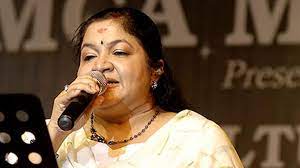
Renowned singer and National Award-winner KS Chithra has become the center of a social media storm following her recent video message, in which she encouraged people to chant Lord Ram hymns during the consecration ceremony of the Ram Temple in Ayodhya on January 22.
In the circulated video, Chithra urged everyone to participate in the spiritual event by chanting the ‘Sri Rama, Jaya Rama, Jaya Jaya Rama’ mantra precisely at 12:20 pm, coinciding with the sacred ceremony. Additionally, she suggested lighting five-wick lamps in households across the country in the evening to commemorate the occasion.
However, the singer’s call for spiritual participation has ignited a backlash on social media, with critics expressing their disapproval of her message. Several online users condemned Chithra for her stance, leading to a divisive discourse on the platform.
Amidst the criticism, there were also supporters who defended Chithra’s right to express her personal beliefs and opinions. Singer G Venugopal, an ally of Chithra, condemned the online remarks, stating that they were not only insulting but also hurtful to the artist. In a Facebook post, Venugopal appealed to critics to show understanding and forgiveness, especially if they held differing opinions from Chithra.
This online controversy comes in the wake of a similar incident involving actor Shobhana, who faced intense criticism for participating in a women’s empowerment program organized by the BJP in Thrissur. During the event, Shobhana shared the stage with Prime Minister Narendra Modi, sparking a wave of backlash from certain sections of the public.
KS Chithra, often referred to as the ‘Vanambadi’ (nightingale) of Kerala, has a distinguished career marked by thousands of songs sung in various languages and numerous national and state awards. The singer’s involvement in matters related to religious events has sparked a larger debate about the intersection of art, personal beliefs, and social media scrutiny.
As the cyber controversy unfolds, supporters and critics continue to engage in a dialogue regarding the right of public figures to express their opinions, especially on sensitive matters of faith and spirituality.
Sources by Agencies


